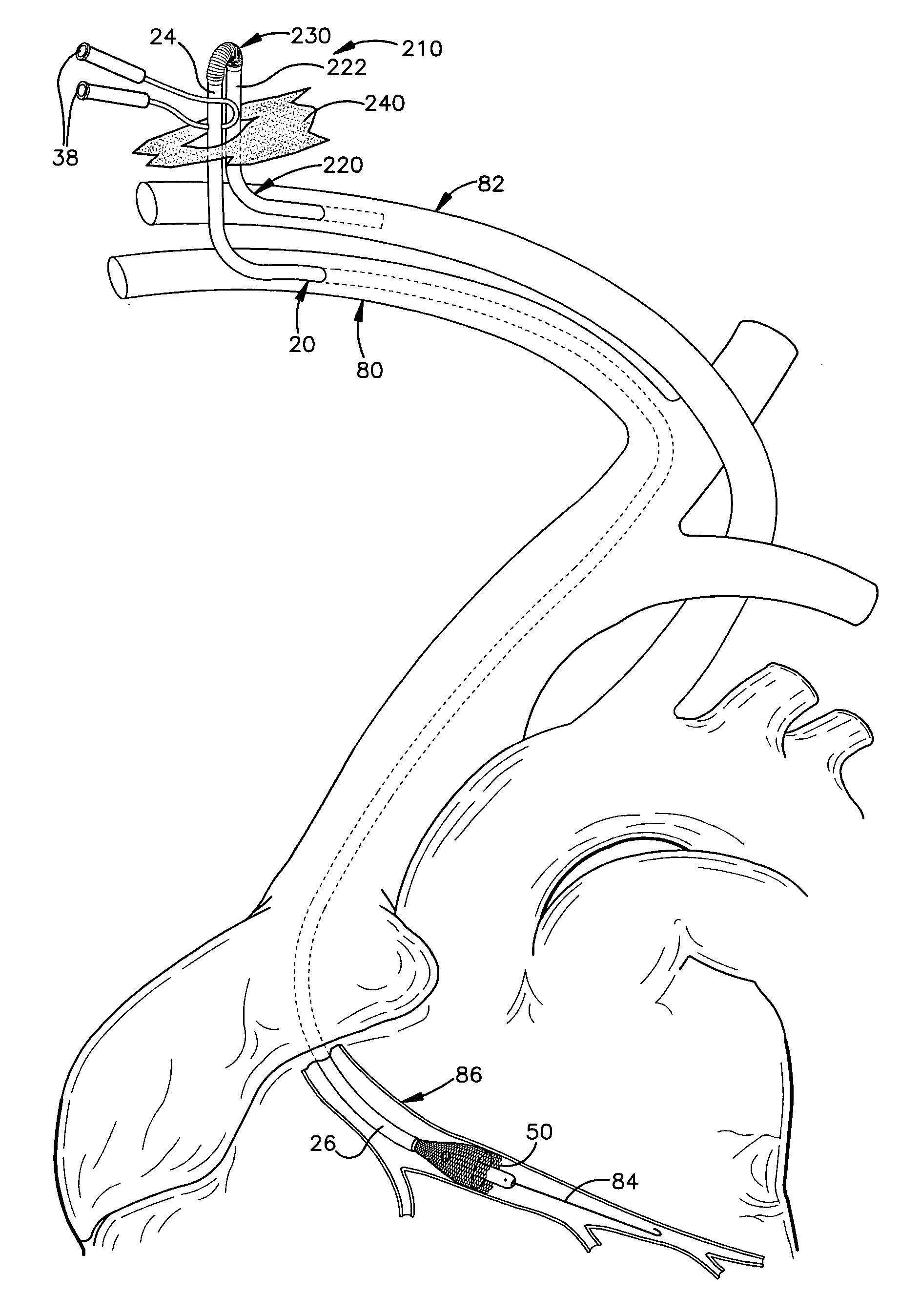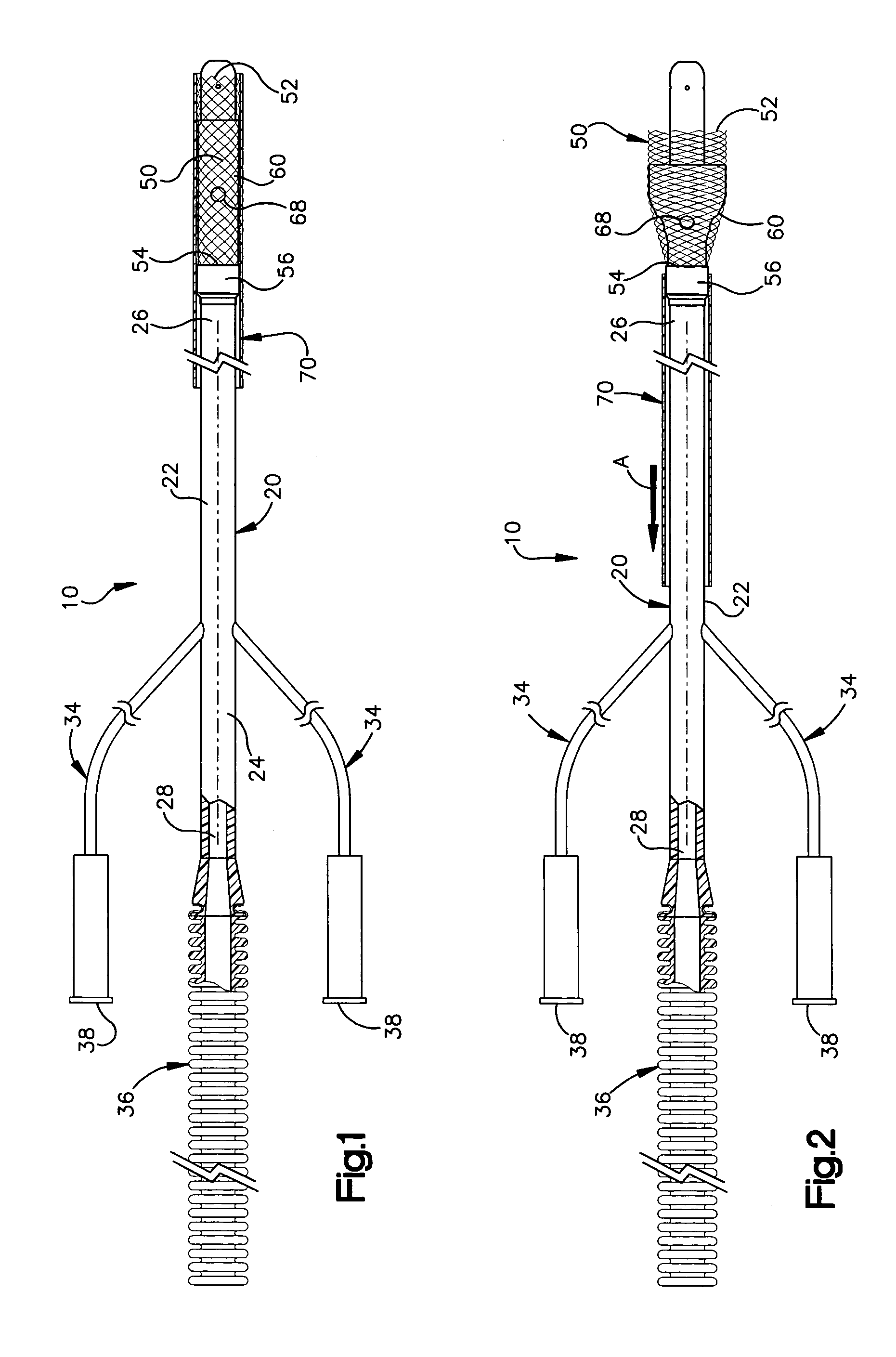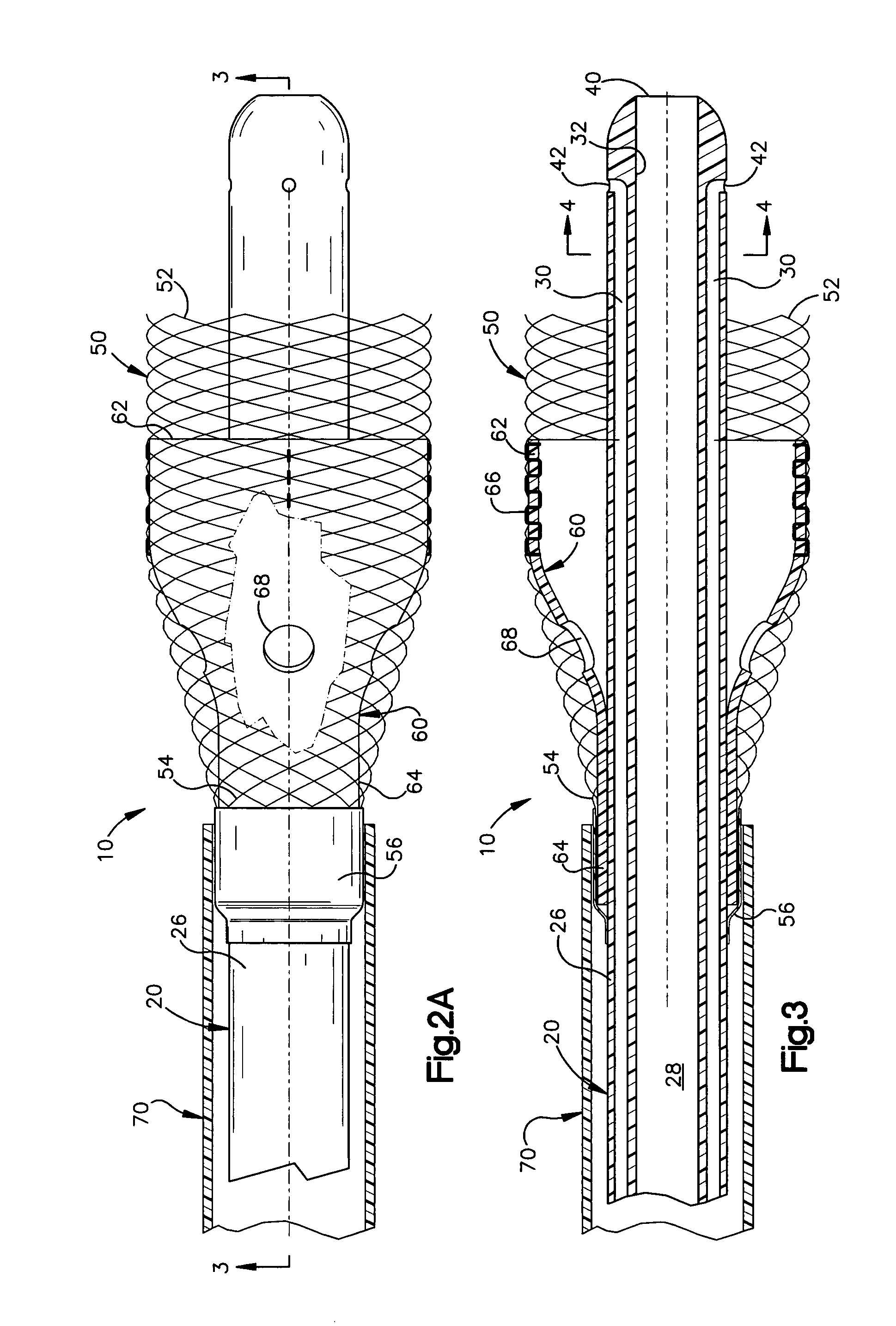Apparatus and method for auto-retroperfusion of a coronary vein
a technology of auto-retroperfusion and coronary vein, which is applied in the direction of prosthesis, blood vessels, therapy, etc., can solve the problems of insufficient frictional contact with the lumen surface of the shortened balloon, and disadvantages of using the inflated balloon to occlude the vessel, so as to reduce the backflow of blood
- Summary
- Abstract
- Description
- Claims
- Application Information
AI Technical Summary
Benefits of technology
Problems solved by technology
Method used
Image
Examples
Embodiment Construction
[0038]The present invention relates to an apparatus and method for automatically retroperfusing a coronary vein with oxygenated blood from an artery to treat severely symptomatic patients requiring an increase of oxygen supply to an ischemic myocardium. As representative of the present invention, FIG. 1 illustrates an apparatus 10 for automatically retroperfusing a coronary vein in accordance with a first embodiment.
[0039]The apparatus 10 includes an intraluminal cannula 20. The cannula 20 has a main body portion 22 that extends between a proximal end portion 24 and a distal end portion 26. The main body portion 22 is constructed from a biocompatible, non-thrombogenic material including but not limited to PTFE, silicon rubber, or polyurethane. The main body portion 22 could alternatively be made from a biological material.
[0040]As best seen in FIGS. 3 and 4, the main body portion 22 of the cannula 20 has a centrally located primary lumen 28 and a pair of oppositely disposed secondar...
PUM
 Login to View More
Login to View More Abstract
Description
Claims
Application Information
 Login to View More
Login to View More - R&D
- Intellectual Property
- Life Sciences
- Materials
- Tech Scout
- Unparalleled Data Quality
- Higher Quality Content
- 60% Fewer Hallucinations
Browse by: Latest US Patents, China's latest patents, Technical Efficacy Thesaurus, Application Domain, Technology Topic, Popular Technical Reports.
© 2025 PatSnap. All rights reserved.Legal|Privacy policy|Modern Slavery Act Transparency Statement|Sitemap|About US| Contact US: help@patsnap.com



